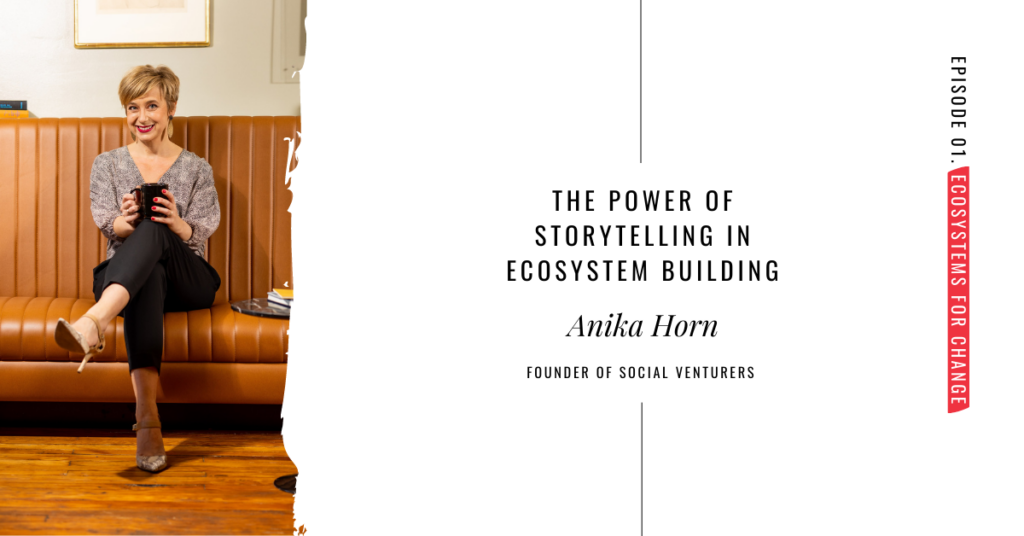In season 6 of Ecosystems for Change, we are going to explore the art, craft, and science of telling meaningful stories that have the power to affect change in our communities.
I’ve always enjoyed hearing other people’s stories, reading about them, and eventually telling these stories. As I started out helping to develop the ecosystem in Richmond, VA, I also began to understand that storytelling is a powerful tool in any ecosystem builder’s toolbox.
But once I picked up Peter Block’s book, “Community: The Structure of Belonging,” I understood that storytelling could be much more and that it’s actually a tool that helps a community create a vision for itself, to dream of a future that might be possible.
To me, this following quote sums up his work beautifully:
“Stories can give us a narrative to guide and instruct us. They are crucial to our knowing who we are; they provide a sense of identity. […] We need to distinguish between the stories that give meaning to our lives and help us find our voice, and those that limit our possibility.”
This season, I’m speaking with other storytellers to learn their tips and tricks of the trade. I hope to uncover how others go about finding and telling meaningful stories that give hope and propel their communities forward.
I want to find out exactly what intentions these storytellers have, how they approach storytelling, what their process looks like from beginning to end, and how they make the finances work.
As always on this show, my hope is that we can learn from each other, avoid the obvious pitfalls, and as a result become better at what we do: Transform our communities by supporting the changemakers within them.
Click here to listen to this episode on your favorite podcast player!
Listen to the full episode to hear:
- Two examples of the impact of storytelling from my own life
- Why we need to focus on telling stories of possibility instead of railing against problems
- How negative narratives keep us stuck
- The power of positive storytelling to propel change in our communities
Learn More About Anika Horn:
- Website: www.socialventurers.com
- Instagram: SocialVenturers
- Newsletter: Sign up for Impact Curator
Resources:
- Community: The Structure of Belonging, Peter Block
- The Space Beyond Scarce: Collaboration and Ecosystem Building for Entrepreneurs and Change Makers with Anika Horn
- Manifesto for a Moral Revolution: Practices to Build a Better World, Jacqueline Novogratz
- Shenandoah Community Capital Fund Blog
- EcoMap Technologies
- Summer Skill Sessions: Ecosystem Mapping
